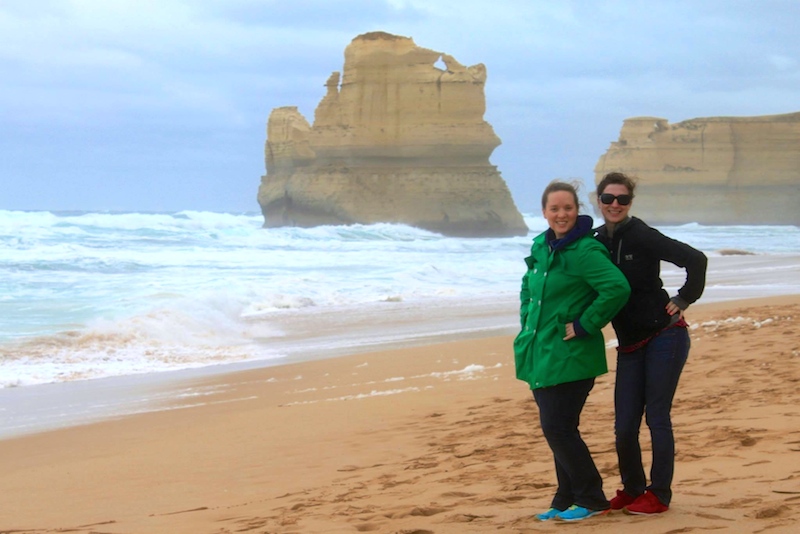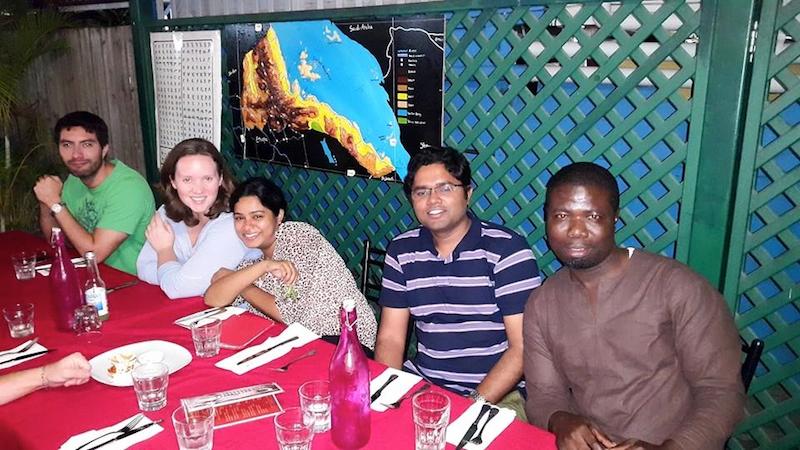4 Things that Surprised Me about Australian Universities

I am one of those nomads who decided that she wanted to completely alter her life and become an expert in a new field, mid-career. As a result of this plot twist, I am currently working on a masters in a university in Australia in Integrated Water Management, focusing on water and sanitation in developing countries. One of the advantages I have in my current program is that I already have a masters from a reputable university in the US in public administration, so I’ve already had to deal with the challenges in time management and academic expectations for a postgraduate degree.
My experience in the Australian higher education world is different than it was in the US. While I still have a lot of assignments to manage while maintaining a busy social life, I’ve found that some pieces of university life have surprised me in Australia with their contrasts to the US system.
4 Things that Surprised Me about Australian Universities

4 Things that Surprised Me about Australian Universities
Grading
Australian grading is not the same as in the US; I believe it’s more difficult. The US has the GPA system largely based on 4, but Australia seems to go with the scale of 7. Interestingly, while in the US it’s perfectly reasonable for a student to achieve a 4.0 GPA across the board, in Australia a 7 is essentially impossible.
The thing is, “7” is achieved for any grade over an 85%! That means, in American terms, it’s extremely difficult to achieve anything above an American B (or a 3.3). I personally don’t understand the concept of having an unachievable grade for university students. I mean, if only a handful of students in the entire history of the academic system can achieve a 7 status, then what’s the point? Why set students up for not being awesome?
My social groups are not bound to meet up with each other, like in school groups, and so we have to put in more time and effort to strengthen our friendships.
One of my friends explained this phenomenon as “Tall Poppy Syndrome.” Basically, people who are of genuine merit exhibiting signs of awesomeness…and that others resent them for this said awesomeness. Someone also complained to me recently that Americans award and celebrate their achievements too much (thus exhibiting signs of this syndrome) and are always looking for the best of the best, while Australians (as a whole) appreciate leveling the playing field so and that everyone is on par with each other at a level of normalcy.
The discouraging thing for my American self is that my hard work feels unappreciated at times. I don’t even think I have worked this hard before on assignments for a degree, or submitted such great work on my end, yet my grades, to the American eye, reflect like I’m doing worse.
4 Things that Surprised Me about Australian Universities
Extracurricular Activities
In my American degrees, the gym was a frequented haunt – it was a free service that came with my school tuition. I also was a member in a number of university clubs, including Ultimate Frisbee and Chamber Chorus, which gave me great outlets for socializing with other students not in my program. I might have signed up for one-too-many clubs at the beginning of my student career, but I ended up trying out clubs that let me figure out my interests and social groups.
In university in Australia, things run a bit differently. First of all, the student gym has a yearly membership – my school’s annual pass costs over $600; daily passes cost a meal, should you want to try out a class. I have instead found ways to be active outside without a gym membership, including walking and bicycling around town. I also have teamed up with some of my classmates to organize small workout sessions with each other after class.
4 Things that Surprised Me about Australian Universities
Additionally, student clubs cost some money. While the university supports clubs with stipends, members still have to pay something in order to attend events and meetings. I was going to join a chorus group on campus until I found out that joining had a price tag. Being overly conscious of my cost of living in an expensive country has made me especially reluctant to put down money where I’m not sure I’ll really enjoy myself.
The perk about this is that it forces price-conscious students like me to find creative ways to meet new people and keep active. I have joined Meetup groups to meet other like-minded people my age, which also means that I am able to meet more people in the city who are not affiliated with the university. My network is definitely diverse for a university student, and I think it’s partly because I have to find other ways to make friends while in school. It’s also forced me to work on my new friendships in real-life ways – my social groups are not bound to meet up with each other, like in school groups, and so we have to put in more time and effort to strengthen our friendships.
Globalization
One thing I have found in my classes are that they are more international than my classes ever were in the US – and by a lot. Perhaps because the cost of education is lower than it is in the US, or perhaps because it is close to a lot of education-hungry countries, my Australian university boasts a healthy amount of foreigners on campus. My program only sports 3 Australians out of our team of 19 – the rest of us come from almost every other continent on earth. We hail from Armenia to Zambia (literally), and the nomad inside of me relishes the multiculturalism in classes.
Here in Australia, you must communicate with your classmates for team projects, and ultimately learn more about the world outside of your country’s borders.
I think many US universities could benefit from a more international collection of students – I know a lot of Americans who struggle in understanding people from other cultures. Here in Australia, you must communicate with your classmates for team projects, and ultimately learn more about the world outside of your country’s borders.
4 Things that Surprised Me about Australian Universities

Housing
While the culture of dorming has been a key perk to the college life in American universities, there is not really the same culture in Australia. Most undergraduate and graduate students find housing on their own, outside of the university area. Sure, there are a handful of dorm options for undergraduate students, and some companies have set up student-only apartment complexes in nearby areas – common rooms and meals included. Ultimately, though, it costs a lot more money to live near the classrooms or surrounded by fellow classmates, so students either opt to live at home (if they’re local), or find a place off-campus. There are a lot of affordable places to live further out of campus here in Brisbane, and it means you’ll have more opportunities to meet other people outside of your specific university setting.
Living in an off-campus area forces me to get out to explore other areas – I can’t allow myself to stick to one small location while I live here.
Sure, there is not that same kind of dorm-specific camaraderie so many American students enjoy, but getting out and living with roommates off campus lets me live the lifestyle of a grownup. My housing is also much quieter than a dorm room would be, and I like that. Living in an off-campus area forces me to get out to explore other areas – I can’t allow myself to stick to one small location while I live here. As I’m studying abroad, sticking to one area and not going out to see every inch of the area would feel pointless.
4 Things that Surprised Me about Australian Universities photos by Kimberly Worsham.








